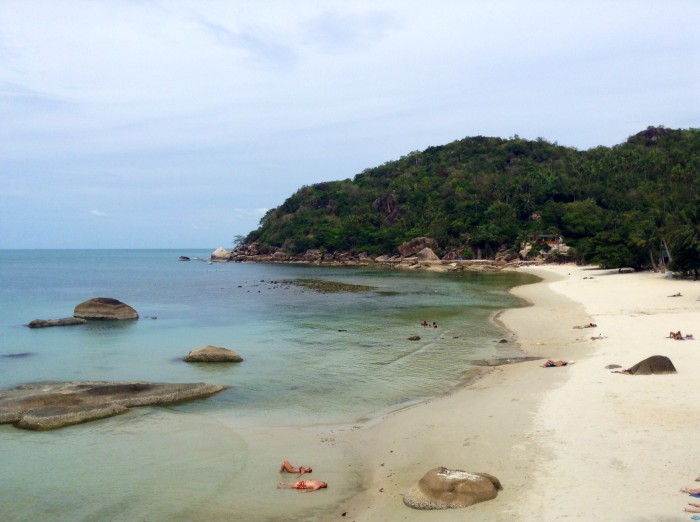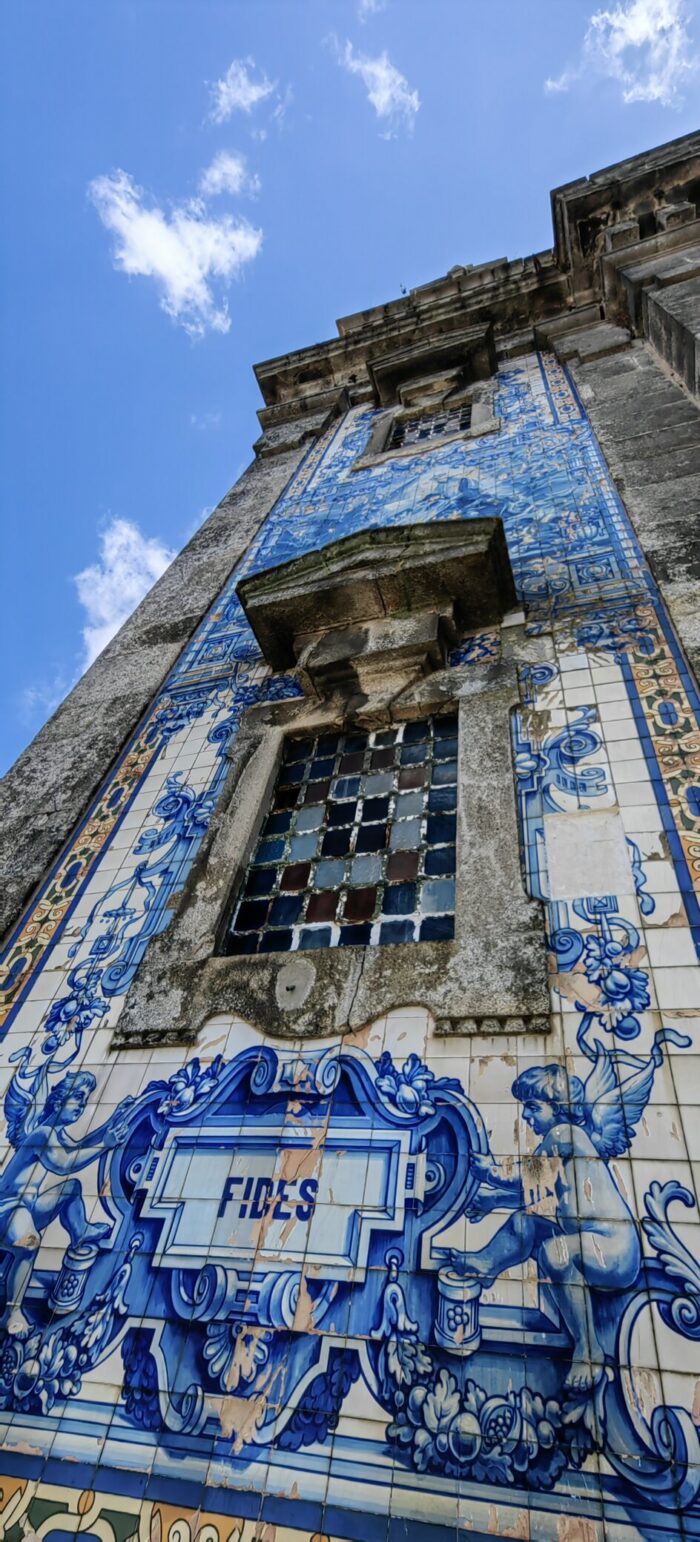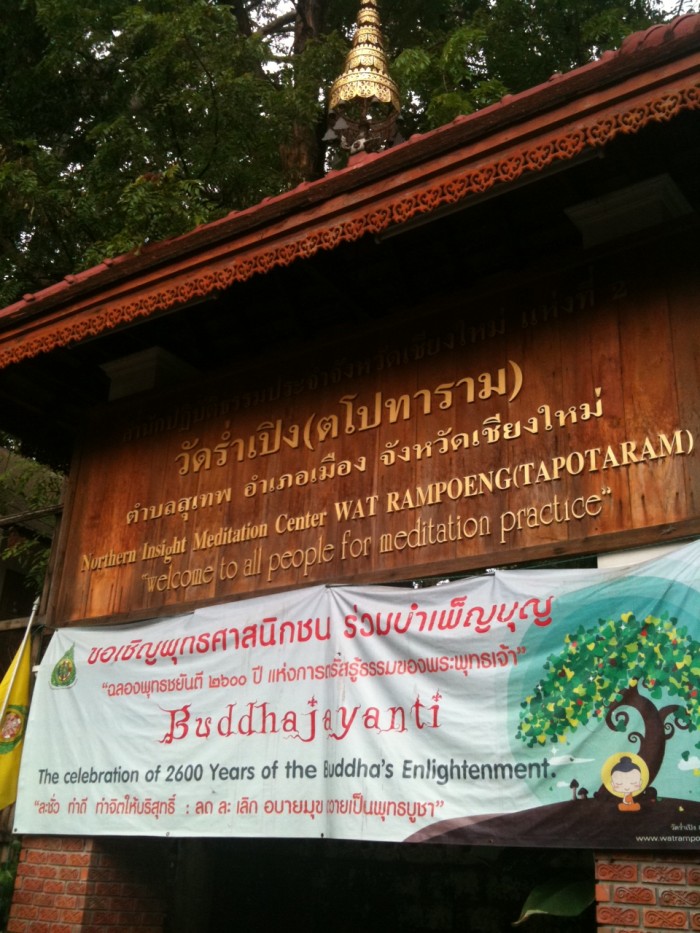 Last year, while traveling in Thailand, I unexpectedly found myself at a 10-day Vipassana retreat at Wat Rampoeng, a Buddhist monastery in Chiang Mai. I’d made that decision on a complete whim. I had met a fellow traveler just a day before, who told me he was heading there the next day. “You should try it out,” he told me, and so I did. Little did I know what I would find there.
Last year, while traveling in Thailand, I unexpectedly found myself at a 10-day Vipassana retreat at Wat Rampoeng, a Buddhist monastery in Chiang Mai. I’d made that decision on a complete whim. I had met a fellow traveler just a day before, who told me he was heading there the next day. “You should try it out,” he told me, and so I did. Little did I know what I would find there.
Vipassana, or insight meditation, is a form of mental development practice that focuses on mindfulness training. There are two different branches of Buddhism: Theravada (the Teaching of the Elders), and Mayahana (the Great Vehicle). In Southeast Asia, including in Thailand, most Buddhists follow Theravada Buddhism. Interestingly, according to their school of thought, the Buddha did not have any restrictions on meat eating for the lay people. Monks, too, are allowed to eat most forms of meat, so long as the animal wasn’t killed on their behalf. As part of the meditation practice and to cultivate a pure mind during my stay, I had to take an oath to observe the eight precepts, a code of ethics recommended to lay people who wish to practice Buddhism more strictly. The eight precepts are:
1. To abstain from harming or taking life.
2. To abstain from taking what is not given.
3. To abstain from any sexual misconduct.
4. To abstain from false speech.
5. To abstain from the use of intoxicants.
6. To abstain from eating after the mid-day meal.
7. To abstain from dancing, singing, music and watching entertainment, and from using enticing beauty aids.
8. To abstain from indulging in high and luxurious seats and beds.
As you can imagine, though the prec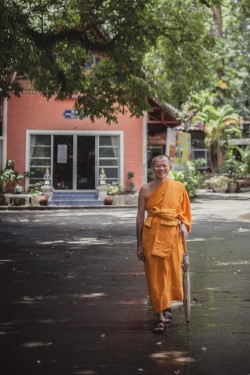 epts are simple in nature, it was a lot for a traveler like myself to take in, all at once. I had to turn in my electronic devices, books, and journals; then I stashed away my makeup and plopped down on my flat, yoga-like, mattress on the floor. What exactly did I sign up for?
epts are simple in nature, it was a lot for a traveler like myself to take in, all at once. I had to turn in my electronic devices, books, and journals; then I stashed away my makeup and plopped down on my flat, yoga-like, mattress on the floor. What exactly did I sign up for?
On the first day of the retreat, a monk tried to reinforce the first precept by making an example of mosquitos. If a mosquito lands on us, he said, do not swat it out of habit. Acknowledge that it’s there, and let it be. All living things have a right to life, and that should be respected. I completely agreed. However, I couldn’t help but be baffled by their philosophy on eating meat. If killing a mosquito is going against the first precept of abstaining from harming or taking life, then how is meat eating justified? I felt like their justification, that the animal wasn’t killed on their behalf, was a complete cop-out.
We were provided two meals a day. One was at 6 am, and the second at 10:30 am. After noon, we weren’t allowed to consume anything, other than beverages, and ironically, dairy products. Both meals came with two options: meat or vegetarian. Both were prepared on the grounds from foods donated to the monastery. Again, I was left with the question – on whose behalf was the animal, whose meat was donated to the monastery, killed? Personally speaking, I thought it was a bit contradictory to be both a meat-eater and a Buddhist, while adhering to the eight precepts. This was when I decided to become a vegetarian.
During insight meditation, we were asked to focus on the four foundations of mindfulness: contemplation of the body, feelings, mind, and objects of the mind. For me, practicing mindfulness was also being aware of where the food, which was going into my body, was coming from. This provided further impetus for my change. We were awoken at 4 am by the reverberating sounds from the bell tower, signaling a new day’s beginning. The sound of the bell was accompanied by loud howling from the dogs that lived on the grounds. From there, we either freshened up, or got straight to meditation. At 6 am, breakfast was served, and prior to eating we engaged in chanting, which is done in Pali, and was music to the ears. After washing our own plates, we were expected to help in the maintenance of the monastery grounds, which usually consisted of sweeping leaves off the paths. I found this chore to be a surprisingly pleasant part of my day, as I was able to meditate and practice mindfulness even while performing housework. Sweeping, sweeping, sweeping. When finished, we  meditated on our own some more until lunchtime.
meditated on our own some more until lunchtime.
At 2 pm, we individually had to report to the meditation teacher and Abbott of the monastery, Ajahn Suphen, who provided us with individual guidance and instructed us on our practice, advising us on how many hours we were to meditate (each day, the number of hours increased). By my last day of meditation, I was meditating 12 hours a day! After the meeting, we had the rest of the day to ourselves to simply meditate, and were permitted to go to bed at 10 pm, no sooner. It was a mentally grueling process and a challenge.
Though meditation is a calming experience, meditating for 12 hours a day is no easy practice. After the ten longest days of my life, I was ready to say goodbye to the monastery, which is no surprise. I didn’t mentally prepare myself for the journey. Yes, being mentally prepared for mental development, as funny as it may sound, is important! I’d like to say that I was enlightened, but I wasn’t. I did, however, gain many personal insights and was able to calm my mind to some degree, especially after having been, at that time, recently laid-off from a position back in New York City. The next time around, I vow to at least prepare myself a bit more before embarking on such a grueling mental journey.
The one thing I am happy and truly blessed to have gained from my stay at the monastery was my decision to switch to a vegetarian diet, which, I’d say, was a major life change. I have since made the transition to a vegan lifestyle (thanks largely in part to the wonderful tips I’ve gotten from Peaceful Dumpling), and a year later, I am back in Thailand, this time under different circumstances. Currently, I’m living in Koh Samui, an island situated in the Gulf of Thailand. Finding vegan foods here has not been a breeze, although I did manage to find a vegetarian restaurant recently that had a vegan soup with tofu and vegetables! Other than this magical discovery, I would estimate that 95% of the dishes are laden with animal products. The other day, I thought I ordered a vegan dish, stir-fried vegetables with steamed rice, only to find out that it was prepared in fish sauce.
The language barrier has not made it any easier, and has presented quite the challenge. How exactly do I explain to someone that I don’t eat any animal products in mere gestures? Thankfully, the Lonely Planet Thai Phrasebook found a solution for people like me. This page, from the phrasebook, has been my saving grace on quite a number of occasions now. 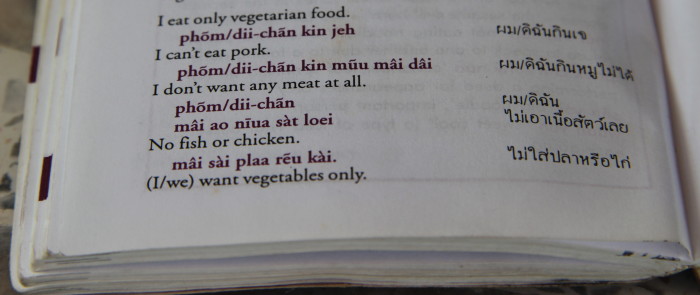 Saying “yes” to something as simple as heading to a 10-day Vipassana meditation retreat has led me to satisfying and rewarding life experiences and a significant change in my lifestyle. A year ago, I would have never predicted that I’d find myself requesting “special” meals at street food kiosks in Thailand, but then again, that’s the beauty of life, it’s all too unpredictable. Opening up to new experiences can lead to a fabulous, new and improved you; it certainly did for me!
Saying “yes” to something as simple as heading to a 10-day Vipassana meditation retreat has led me to satisfying and rewarding life experiences and a significant change in my lifestyle. A year ago, I would have never predicted that I’d find myself requesting “special” meals at street food kiosks in Thailand, but then again, that’s the beauty of life, it’s all too unpredictable. Opening up to new experiences can lead to a fabulous, new and improved you; it certainly did for me!
Also by Cristina: Vegan in St. Petersburg, Russia
Related: 5 Ways to Practice Mindfulness for Happiness
Sweet Silence – A Story of Finding Stillness
Vegan Thai Green Curry from Scratch
My Vipassana Meditation Experience
__ Photo: (photo of monk) Wat Rampoeng’s Facebook page; (rest) Cristina Lescay Megret

